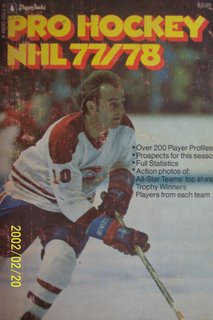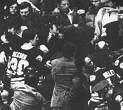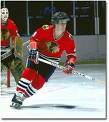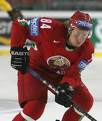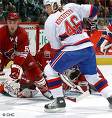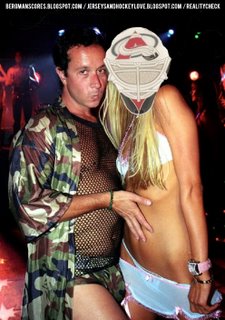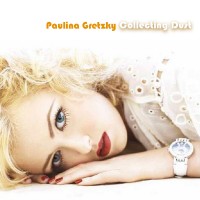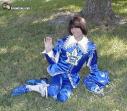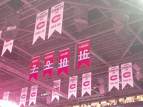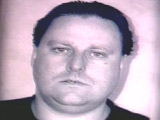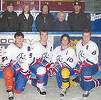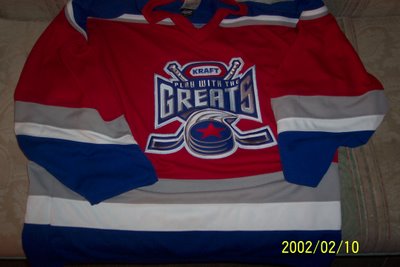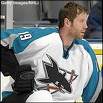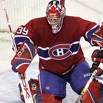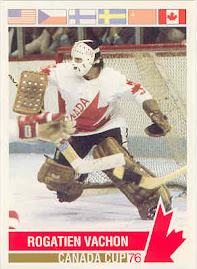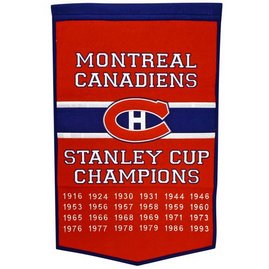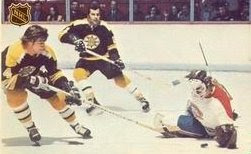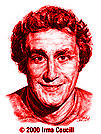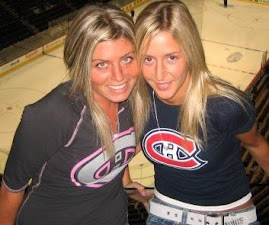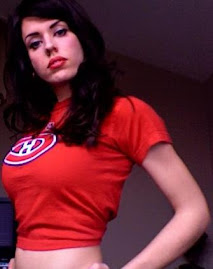
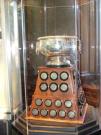
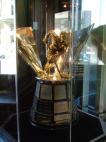
"The individual awards and achievements are nice. It's something I will reflect upon once my career is over. Don't get me wrong, I am very proud of them, but this is a team game. For now all that matters to us is focussing on getting our names on the Cup".
The above quote / overused cliche can be attributed to every media savvy NHLer worth his salt.
Player awards have long been a great concept in pro sports as they simultaneously reward the individual while maintaining and promoting fan interest. To a point, the quote is very real in the sense that, in essense, it is all althletes tend to strive for. On the other hand, few will admit that these perks become negotiating levers in contract talks. Just ask Jose Theodore!
For fans of particular teams and players, these trophies are akin to feathers in a hat. It's something to cheer for, keep up to date on statistically, and eventually brag about.
I was surprised to find that the NHL has a total of 23 individual and team trophies and awards, including the 33 lb Holy Grail. Most are well known amongst hockey fans, such as the Hart (MVP), the Calder (Best rookie), the Norris (Best D), and the Conn Smythe (Playoff MVP). Other more obscure hardware comes by way of the Bud Light plus/minus and All Star game MVP awards, the Roger Crozier Saving Grace Award (Best save %), and the NHL / Sheraton Road Performer award (Most pts during road games).
It has gotten to the point where there is practically a trophy, award, or merit for every statistical nuance in the game. It is probably not only my opinion, but I'd love to see a trophy awarded for the most penalty minutes accumulated in a season. Though I'm sure the Dave Schultz Trophy will never come to be, it's safe to assume that such a thing would hold more interest than the lame Lady Byng. It's the old adage that no one is interested in something you didn't do.
I have no problem with the statistically driven merits such as the Art Ross, the William Jennings, or the Maurice "Rocket" Richard trophies. Trophies awarded through a voting process, however, have a habitual recurrance of missing their mark. Not always - usually a general consensus of the Canadian and American hockey writers establishment manages to get it right. There is however an imbalance of voters geographically that tend to tilt the honours toward the East Coast upon occasion, including a scrum of New York scribes who focus mainly on their own microcosm. Like an American Toronto, these writers and voters aim their gaze away from much of what doesn't involve the usual Eastern rivalries.
Grave errors (relatively speaking) due to bad judgement, lack of complete information sources, dubious amounts of credibility, and plain old favoritism, have placed many a wrong name on a major award for the balance of time.
On a less serious note, award contestation can get real stupid at times, when based on matters of opinion with no statistical background to back them up. Witness all the pre and post Emmy or Academy Award hype to see how ridiculous the opinionated achievements can get.
Keeping all this in mind, it is now time to hand out EOTP NHL Turkey Awards!
Given to the givers as much as those recipients mistakenly rewarded and less deserving of the honours. No hindsight required here. These boobs were dead wrong from the get go!
1 - CALDER 1990: Sergei Makarov - Calgary Flames: This one came under almost universal derision and caused the rookie qualifications to be updated. Makarov was a 32 year old rookie and veteran of several international hockey tournaments for a decade. He was for all intents and purposes, not a rookie by any standard except the NHL stipulation. Before the next season, the qualifications were amended, thankfully, and now a rookie is described as a player who does not turn 26 before September of the eligible year. They should have done it after Peter Stastny won it in 1981. Mark Recchi, Mike Modano and Rod Brind' Amour were all more deserving of this one.
2 - SMYTHE 1994: Bryan Leetch - New York Rangers: No doubt Leetch had a great run scoring 34 points as the Rangers finally won the Cup. The story of that year however, was Mark Messier and how he captained and carried the Rangers to victory. Messier had 30 points, and cemented an already legendary career when he daringly proclaimed his team would win game seven versus the Devils in the previous round. "Guaranteed" shouted several NY area papers, as Messier went out and served up a hat trick while making good on his promise. Talk about delivering! Sport doesn't get more exciting than this. The writers saw it differently though, as Leetch was American born, and the series took on a U.S. versus Canada theme. Messier had already bagged a Smythe and that likely worked against him getting it a second time. Damn yankees.
3 - SMYTHE 2003: J.F. Giguere - Anaheim Mighty Ducks: Another amendment is needed here. The trophy given out "to the most valuable player to his team in the playoffs'' should read "winning team" point blank. Why do voters turn this pivotal award into a consolation prize is beyond me. Why not give it to the player " who was great, but not good enough to win?" Many teams who win the Cup have so many deserving players while the losing side has one particular individual who stands out. This should hardly rationalize it. Five times since its inception in 1965, it has gone to a player on the also rans. Goalies Ron Hextall (1987), Roger Crozier (1966) and Glenn Hall (1968) all put on amazing performances in those years. The Oilers (87) and Habs (66,68) teams they lost to were pretty much dynasties and loaded with worthy recipients. In 1976, Reggie Leach of the Flyers was given the hardware for his playoff record 19 goals, although his team failed to win a single game against the Canadiens, and Hall won no games in the '68 final. Wayne Gretzky had 34 pts in 21 games in the '87 playoffs and surely outplayed Hextall. Scott Neidermayer would have been the right choice for the Devils in '03 as he led the playoff scoring. In '66, '68, and '76, no Montreal Canadien players stood out offensively, but Dryden or Lafleur come to mind in '76 as being more than worthy candidates. Time to alter this one too.
4 - RICHARD 2004: Rick Nash - Columbus, Jerome Iginla - Calgary, Ilya Kovalchuk - Atlanta: This newest of NHL trophies honouring the great Canadien Rocket Richard is given out annually to the leagues leading goal scorer during the regular season. Now a three-way tie is one thing, but handing it out to players who missed the 50 mark is almost sacriledge to the Rockets legend. My solution is to award it only when the benchmark is met and in the event of a tie, use to playoffs as a tie breaker. Just don't let this happen again!
5 - NORRIS 1981: Randy Carlyle - Pittsburgh: Yes, the current coach of the Ducks was a halfway decent defenseman in his day. In '81 an 83 pt season fetched him the Norris to everybody's surprise. Ray Bourque's sophomore season yeiled 27 goals and Denis Potvin's NY Islanders went on to win the Cup, but for whatever reason, voters judged the Carlyle season a better one. That his Penguins were a 73 pt, 3rd place team, hardly seemed to weigh in the balance. For a spell in early eighties, the definition and pure righteousness of this award came under much questioning. With many defenders excelling in different ways at this time, it took the voters a few years to start getting it right again. In the spirit of Doug Harvey and Bobby Orr, the award is given "to the defense player who demonstrates the greatest all around ability at their position". Obviously, this seemed to leave out the strictly stay at home types every team needs, and it caused some consternation for some voters. A knee-jerk reaction to this school of thought would soon follow. Read on.
6 - NORRIS 1983-84: Rod Langway - Washington: Langway's trade from Montreal to Washington transformed the Capitals and they were playoff bound after years of stumbling. His play was solid enough to nab the back to back Norris'. Playing near 30 minutes a game, there was no doubt he was effective. Given the award is to go the defenseman with "the best all around ability", Langway hardly qualified. He managed 32 and 33 pts reapectively in his two winning seasons while the NHL was becoming more offensive than it had ever been. Doug Wilson of the Blackhawks had won it the previous year. It's hard to believe that Potvin (61-66-85), Bourque (66-73-96), Coffee (89-96-126), and Larry Murphy (66-62-79) were all shut out of the award during this three year span. Potvin and Bourque, especially, as they were equally adept as Langway on D while playing on superior teams and putting up double the numbers. The voters have since been more in mind of the "all around' qualities. It was as if the 20 other teams reporters got jealous of Coffee's offensive prowess or decided to punish him for a lack of defense on a team that didn't rely on much of it. A strange time indeed.
7 - SELKE 1993-96: Doug Gilmour - Toronto, Sergei Federov - Detroit, Ron Francis - Pittsburgh: Much like the Norris losing focus in the mid eighties, the same happened with the Selke in the mid nineties.The award was commissioned originally to acknowledge the contribution of players such as Bob Gainey (who won it the first four years) who were so effective in checking roles they affected the outcome of games on a nightly basis. Described as awarded to "the forward who best excels in the defensive aspects of the game", the award was aimed at the unsung hero whose role was somewhat diminished in the larger scheme of things. The term "best excels" seemed to highlight the fact that it would be anyone other than a teams top offensive forward getting the vote. It became clouded for a term why a player couldn't be both. It was a good argument, but it defied the original intent of the trophy. In these 4 years, it became a type of runner up to the major awards consolation prize as this trio of unlikely winners were all major cogs in their teams offensive arsenals. Gilmour had a career year (127 pts) when he won it. Fedorov in '94 and '96 had a 120 and 107 pts. In the shortened '95 season, Francis had 59 pts in 44 games. All three were perfect examples of complete players. All three hardly "best excelled" on defense. Complaints from many a worthy candidate got this awards feet back on the ground with Michael Peca winning it in '97.
8 - CALDER 2004: Andrew Raycroft - Boston: This might seem like a personal gripe, but it really isn't. It has much to do with how to assess a rookie goaltender. The fact that Raycroft suffered a miserable sophomore (soft more?) year has zero to do with it. No position player is more at the mercy of his teams overall quality than a goaltender. It often begs the question, "Who makes who look better?' In Boston that year, Raysoft played behind the stingiest of Bruins defenses. There is no stat that pertains to the quality of incoming shots on a goalie, but what the Bruins didn't block often came from the perimeter to Raycroft. His stats were awesome - his help outstanding! The proof may lie in the fact that the Bruins pitiful defense the following season exposed the same holes in his game as did the Canadiens in th '04 playoffs. Raycroft soon became an expendable third string goalie. This same theory holds true in the case of Tom Barrasso winning it over Yzerman in '84 and Ken Dryden beating out Rick Martin, who'd set a rookie goal scoring record of 44 with Buffalo in '72. Both the Habs and the '84 Sabres were tight defensively and their goalies, not to suggest neither were great, benefitted tremendously from the fruggleness of their staunchy play. When will a goalie on an average team take the honour? Well the Hart was awarded to Theodore four years ago, if that counts for anything! As with all awards being voted on at the end of the regular season, performance in the post season never figures into the equation. Patrick Roy and Cam Ward, not to mention a young Dino Ciccarelli, make good arguments to suggest it's time to alter this hardwares time frame. Did I mention the 2006 should have gone to Michael Ryder of the Habs. Just to make up for the one I'd remove from Dryden!
9 - STANLEY CUP: Carolina Hurricanes: Seriously! No Cup winner in my time has been more dubious. No voting breakdown settled this score, obviously. It had everything to do with timing, bad breaks, negligable rules, and blind referees. I'm not doubting that the Canes aren't a great team, it's just that the obstacles that fell out of their way at convenient times gave many, including myself, the impression that Carolina wasn't always the best team last spring. I found both Buffalo and Edmonton more worthy of winning the whole shebang than the wayward Whalers. For their sake, I hope somehow they prove the hockey minds wrong by returning to the final, but somehow I doubt they will.
I decided againt naming a 10th for fear of redundancy. There were a handful of honourable mentions. Some are of a frivolous nature.
Former 15 minute NHL president Gil Stein, who was vice president to John Ziegler for years before, tarnished his reputation a great deal in 1993. After he conspired to help oust Ziegler and move into the top dogs seat, he not only bagged the Lester Patrick Award (for outstanding service to hockey in the U.S.) he backroom shuffled his sorry ass into the HHOF. His deeds were quickly discovered in time to bannish him from the Hall election, but his Patrick still stands. Needless to say, his tenure as league boss was brief.
Jamie Storr was a promising goalie prospect with the L.A. Kings in the mid '90's, and he managed to do what no other rookie has ever done. By not appearing in the 25 game minimum, he got himself onto the Upper Deck All Rookie team in back to back seasons in 1998 and 1999. He had a strange but true rise into the bigs, appearing in 5 games in each of the 94-95, 95-96, and 96-97 seasons. Finally in '98 he saw action in 17 games going 9-5-1 and received the nod on the UD team. The following season, because he'd still not played in 25 games in one year, he again qualified. As no other rookie goalie of prominance bettered his stats, he once again was named to the All Rookie team.
A similar fate befell Pavel Bure in 1991-92. Although he did win the Calder and fully deserved it by a landslide, he was left off the UD Rookie team. The reason? No one seemed able to decide what wing he played having split the season on both flanks. It also split the votes, unfortunately. Bure probably had a good laugh over it. Tony Amonte and late season flash in the pan Gilbert Dionne got the honours. UD now places the top two vote getting forwards in the slot to avoid the same embarrassment twice.
Well at least some folks learn some of the time!





